8 tools to see the old version of any website
Whether you're just curious to see old web pages or want to find information that no longer exists on the web, knowing how to view older versions of websites can be helpful. This article will introduce you to some tools and tricks to go back in time and see old versions of websites.
1. Wayback Machine
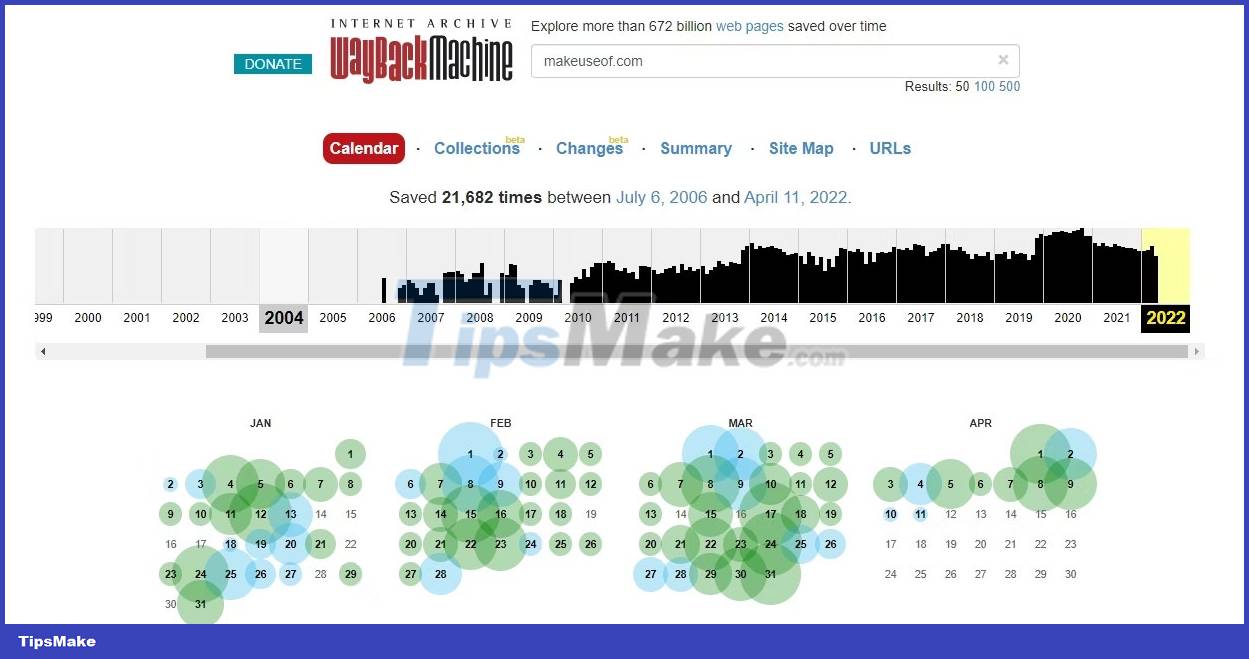
The Wayback Machine is the go-to source for finding old web pages. It's a project of the Internet Archive, a nonprofit library of websites, software, movies, and books.
Founded in 1996, Wayback Machine regularly takes and saves snapshots of thousands of web pages. Currently, the site hosts a staggering 818 billion web pages, leading many to believe that nothing has been removed from the Internet.
To find the old version of any web page, type the URL into the Wayback Machine's search bar. The tool then displays a year-by-year timeline with black lines representing the time taken for the snapshot.
2. archive.today
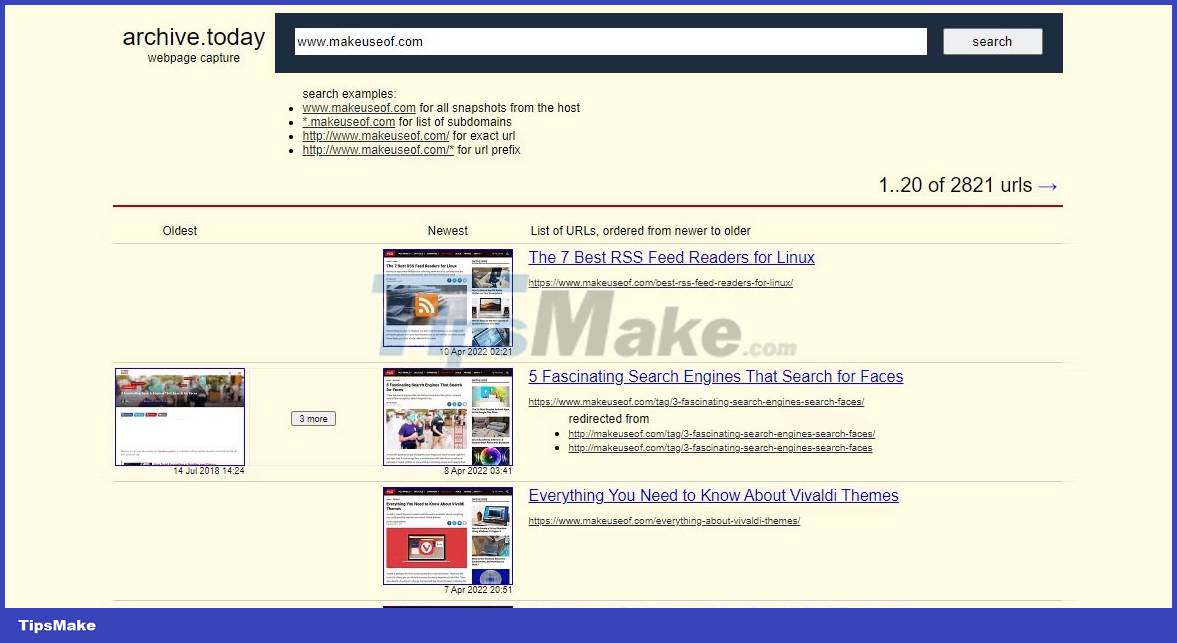
archive.today is a huge library of web pages archived over the years.
To see an older version of any web page, you can search for that site's URL. archive.today then displays all snapshots of that site in reverse chronological order. The tool also suggests several search operators to refine your results.
On top of that, there is an option to download the site as a ZIP file and share the page. Like the Wayback Machine, you can also ask the tool to capture and archive any web pages for future use.
3. OldWeb.today
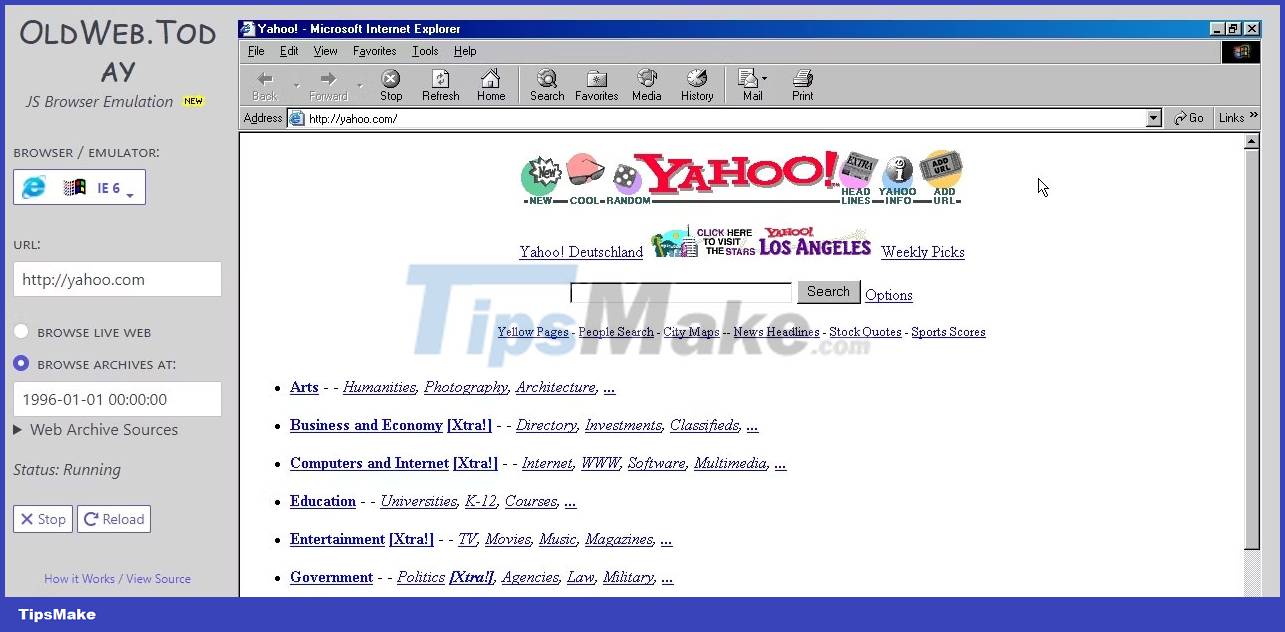
OldWeb.today is more than just a collection of hosted web pages. This site mainly pulls archives from the Internet Archive, but runs them on emulated old browsers to take you back to the early days of the Internet.
Using this website, you can also browse the web directly through old browsers. These browsers include different versions of Navigator, Internet Explorer, Firefox and Mosaic.
Results often take a long time to load, possibly because it promises to bring back the early days of the Internet. Still, it's a good site for viewing archives, reliving 90's nostalgic sites, or showing your kids how difficult it was to browse the web in the old days.
4. Library of Congress

The Library of Congress is the official repository of the United States Congress that holds a large variety of books, newspapers, photographs, websites, and other documents. Its Web Archive program aims to preserve all content available on the web, providing researchers with a reliable source to view web archives.
Searching for any URL on its Web Archives site will bring up the timeline and calendar. The resulting page is quite similar to the Wayback Machine. You can open any old web page in a new window and browse other snapshots using the Previous and Next buttons.
5. Search engine cached pages
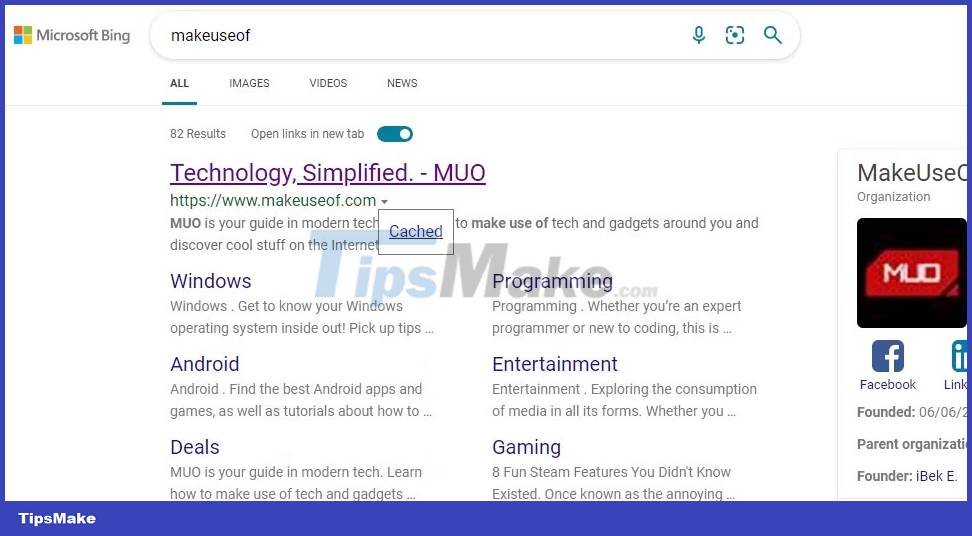
If you want to see the relatively new version of any web page, you can look at the cached pages of the search engines.
To do so, search for the page you want to view, click the drop-down arrow next to the URL of the result, and click Cached. The search engine will then show the latest cached version of the page instead of the active version. On Google, you'll see Cached after clicking the three-dot icon.
If you use Chrome and already know the exact URL with the cached version you want to see, you can add cache: before the URL in the address bar (e.g. cache:TipsMake.com). This way, Google will show you the cached version instead of the active page.
Note that clicking on any link on the cached page will take you to the site directly. You can also use the Google Cache viewing tools for this purpose.
6. Web Cache Viewer
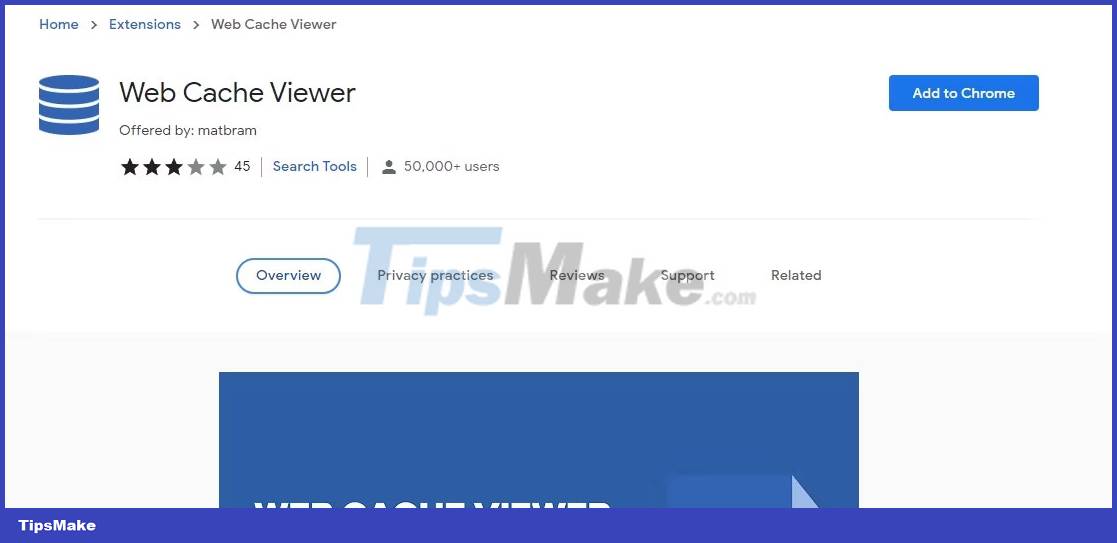
This extension makes it much simpler to view old website versions. Just go to the website with the older version you want to view, right-click on the desktop and select Web Cache Viewer. The extension will open a new window showing the last cached page.
Although this extension takes snapshots from the Internet Archive and Google Cache, with no logs of its own, it allows you to view web archives with ease.
7. UK Web Archive
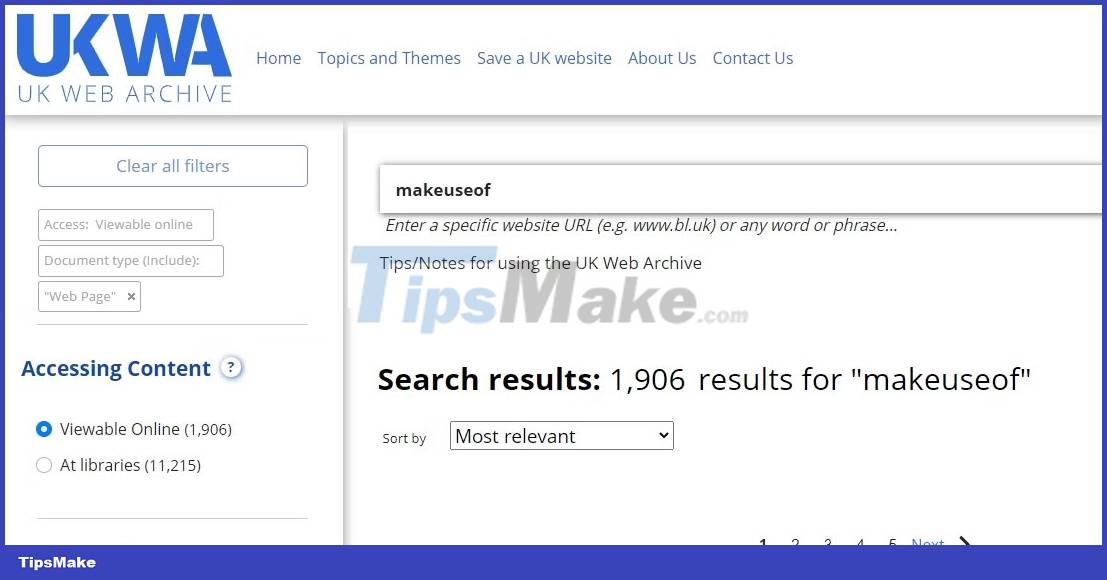
UK Web Archive (UKWA) is another collection of old web pages that aim to save all UK websites at least once a year.
Unlike most other tools, UKWA allows you to search by phrase, keyword as well as URL. Although some content is only viewable on library premises, you can find a lot of online sites.
UKWA has a Topics and Themes page that displays various archived collections categorized by interest. You can also ask the site to crawl and save any UK website. UKWA is an authentic and reliable source especially for viewing old UK government websites.
8. Memento Time Travel
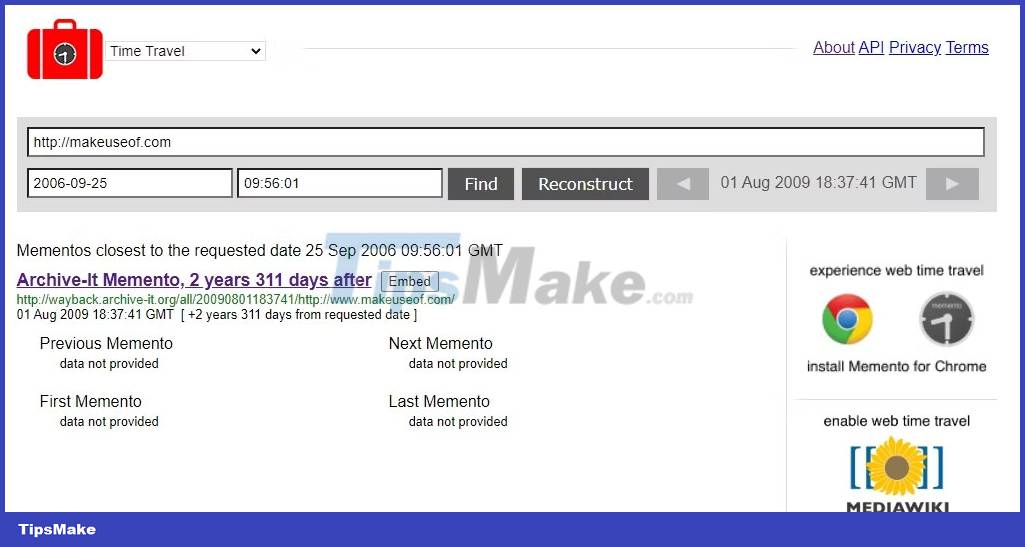
Acting as an aggregator of web archives, Memento Time Travel lets you travel back in time and see old web pages. Memento asks you to enter any URL and past time.
It will then search the requested website in dozens of online repositories, including those mentioned above, and display the snapshot closest to the date entered.
In addition to viewing the snapshot, you have the option of embedding the web page as HTML. Memento Time Travel also has a Chrome extension that allows you to view archives by right-clicking on any web page.
You should read it
- How to View Source Code
- How to view the version of Word in use
- 4 tools to help build a website for beginners
- This website allows users to view 3 new iPhones and many other smartphones in all angles
- Trick to disable moblie interface of the website on the phone
- 15 tools to help build a website for beginners (no code required)
 Instructions for creating photos of sunset effects online
Instructions for creating photos of sunset effects online Instructions to create a heart collage online
Instructions to create a heart collage online Instructions for using Recraft.AI to design photos online
Instructions for using Recraft.AI to design photos online Instructions to register for tickets to 'The Eras Tour' Taylor Swift
Instructions to register for tickets to 'The Eras Tour' Taylor Swift Instructions for translating text on Google Docs
Instructions for translating text on Google Docs